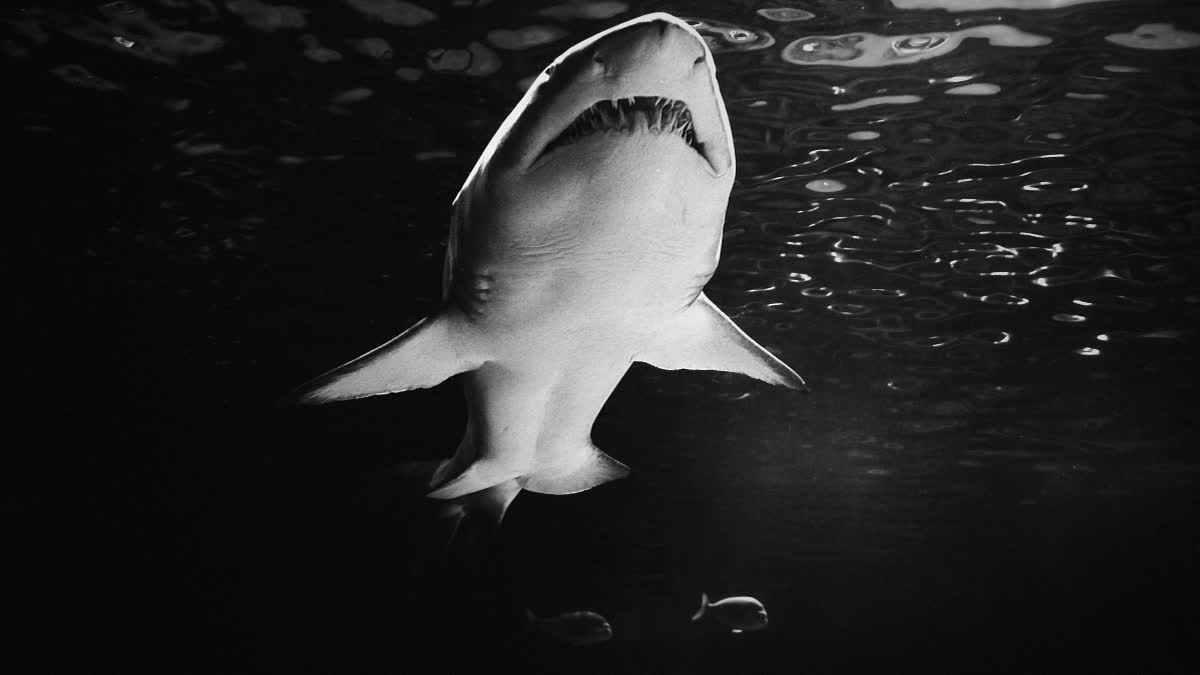Rome (Italy): Italian researchers have noted the first case of "virgin birth", or reproduction without fertilisation, in an endangered shark species, a scientific journal reported this week. The findings published in Scientific Reports concern the first case of the phenomenon in the common smooth-hound shark, Mustelus mustelus, a species threatened by illegal fishing that inhabits the Mediterranean and other warm waters.
Sharks Experiment
Researchers from the Experimental Zooprophylactic Institute of Piedmont, Liguria and the Aosta Valley found that two female M. mustelus sharks under observation in captivity had exhibited parthenogenesis -- in which a female can reproduce asexually without the need of sperm to fertilise the egg -- each year since 2020.
The two 18-year-old sharks have been at the Cala Gonone Aquarium in Sardinia since 2010. "Remarkably, this finding reveals that parthenogenesis can occur annually in these sharks, alternating between two females, and conclusively excludes long-term sperm storage as a cause," the study's authors wrote.
What Is Cycling Parthenogenesis?
Cycling parthenogenesis, in which progeny can be born either from fertilised eggs or asexually with unfertilised eggs, occurs in over 15,000 species, yet is not fully understood.
Parthenogenesis, which is more common in invertebrates than vertebrates, has not yet been seen in mammals. Reptiles and some sharks, rays and skates are able to "modify their adaptive strategy according to the surrounding circumstances", the authors wrote.
'Dip In Male Population Could Be Pivotal Factor'
"Although the mechanisms driving parthenogenesis remain unclear, it is suggested that male population reduction could be a pivotal factor," they said.
Sharks in the wild pose challenges to understanding the phenomenon, but conditions in captivity are ideal for long-term monitoring, they noted.
Aquariums in the United States, United Arab Emirates and Australia have documented the phenomenon in other shark species in the past two decades.
The Shark
M. mustelus, a midsize shark found in shallower waters that can potentially live up to 25 years, is classified as endangered, with estimates showing the population could decline by as much as a half in the next several decades, according to the study.
The study tracked two 18-year-old female sharks in the aquarium for 13 years, without the presence of males. "Nonetheless, a nearly annual production of young was observed in the absence of males," the authors wrote.
DNA Study
The researchers studied the DNA of the offspring to exclude the possibility they were conceived because of long-term storage of sperm by the mothers. The authors also noted that only one of the sharks born from parthenogenesis at the aquarium is still alive today. The two adults "are in good health", sharing their large exhibition tank with other Mediterranean marine species.



